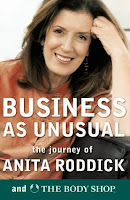 There’s a new phrase that’s going around and I’m not convinced that it’s a good thing.
There’s a new phrase that’s going around and I’m not convinced that it’s a good thing. “That’s my personal view”.
I choked on my coffee when I heard a very senior and very experienced public relations practitioner use the phrase on a political panel discussion over the weekend.
“The organisation’s position is x, my personal view is y”.
What?
The PR guy that triggered my gag reflex was in-house, skilled, and in a very high profile and politicised role. He was a guest on the show as a representative of his organisation. To be fair to the PR guy, the interviewer accused him of fence sitting, and he replied that he wasn’t because, “ The organisation’s position is x, my personal view is y”. Basically he tripped over his ego.
Once upon a time, this would be considered dissent in the ranks and you would be packing your desk. So why has this become acceptable and, more importantly, should it be?
Tools of the Cat Herding Trade
I’ve worked in both corporate and public sector communications (brand and media) and the ‘herding cats’ metaphor is still the most accurate. Communications plans, key messages, brand guidelines, protocols, sign offs and media training of approved spokespeople. All tools to retain control so that some wally doesn’t say something that they shouldn’t. Singing from the same songsheet and being ‘on message’ and all that. One message/in volume/over time. I’m sure you’ve sat through that PowerPoint presentation.
Work Life Balance Has Changed to Work Life Integration
Our job is part of who we are and social media tools such as blogging, FaceBook and Twitter have given employees a soapbox to preach from. As we take increased ownership over brands at a personal level, it’s hard to leave out the place where we spend 40 plus hours per week. We have plenty to say about our employers and inside information is valuable currency in social media transactions. Personal views are given more credibility and perceived as being untainted by paid media and organisational spin.
@littlemisschatterbox “ I work for Japasonic and I’ve spent all day processing returns of the Japowave 3000-the doors all fall off LOL!!!”
There goes your 600k ad campaign. And aren’t you pleased you hired that PR company to write key messages and press releases about the Japowave 3000? It’s a complex area and over the next few months, I’m going to attempt to come up with some practical ways to minimise the risk and disruption that social messages can cause to your top-down messaging. In the meantime, make it very clear to employees that:
- There are certain areas of the organisation that they are not suitably skilled or do not have the authority to comment on,
- Approved spokespeople are in place (or should be!) to provide comment for the organisation,
- Public comment whether in mainstream media or social platforms that the company deems to be inappropriate will result in disciplinary action or possible dismissal.
Individuals can’t get bigger than the organisation they work for and represent
Suitably experienced people should be trained as ambassadors. In my personal view, ‘in my personal view’ has no place in relation to organisational comment and needs to be stamped out.
PS. If you’re wondering about point 3 ‘deems to be inappropriate’, don’t worry, so am I. This is where things start to get ethically very complex! More to come!




